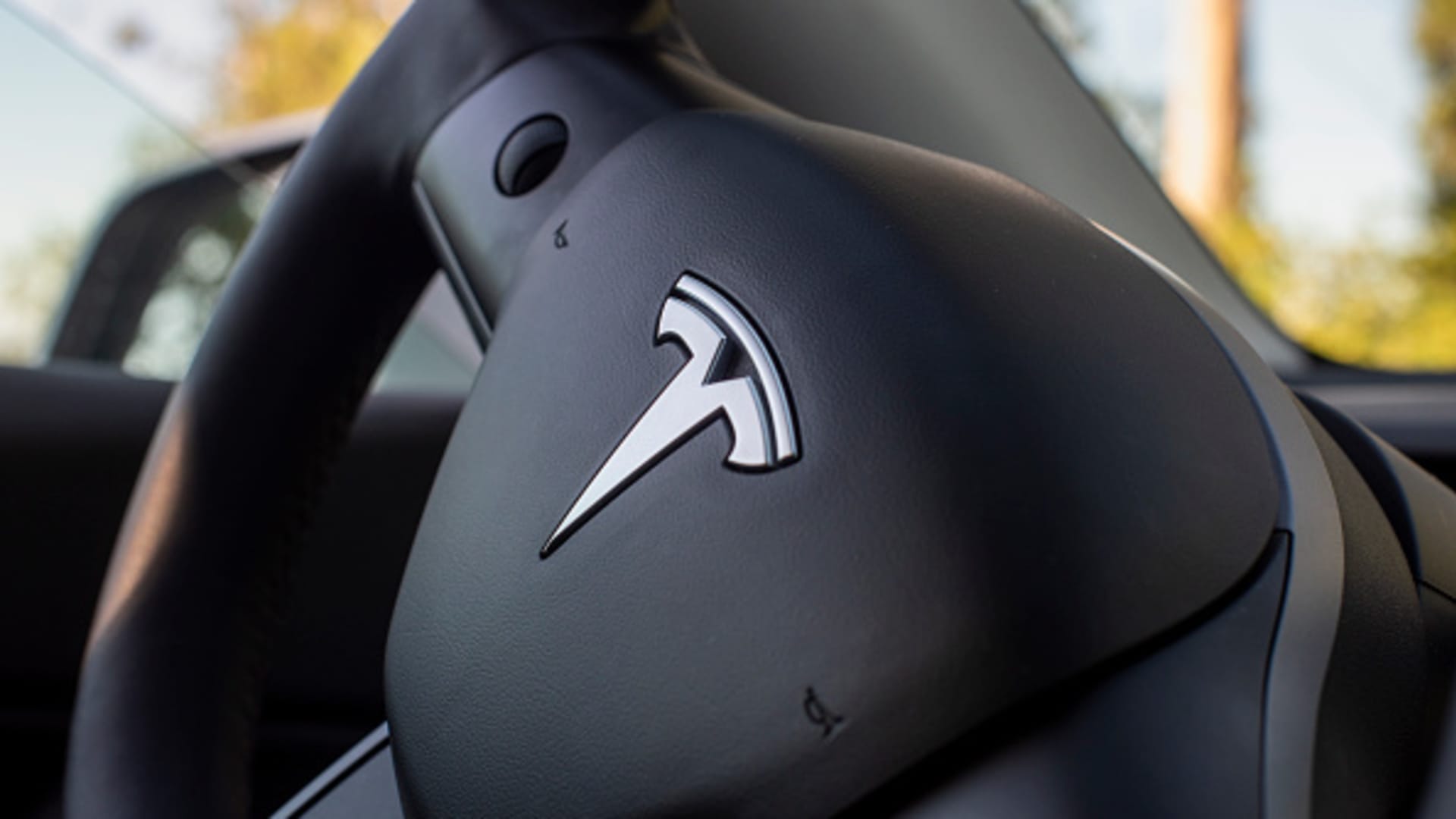
Tesla Model Y, equipped with FSD system. Three front facing cameras under windshield near rear view mirror.
Mark Leong | The Washington Post | Getty Images
Tesla drivers in the U.S. were involved in accidents at a higher rate than drivers of any other brand of vehicle over the past year, according to a new study of 30 automotive brands by LendingTree.
The researchers analyzed quotes from people looking to insure their own vehicles, and did not include accident or incident data involving drivers of rental cars, a spokesperson for LendingTree told CNBC by email on Tuesday.
The study said, “It’s hard to nail down why certain brands may have higher accident rates than others. However, there are indications that certain types of vehicles attract riskier drivers than others.”
With 24 accidents per 1,000 drivers during the period from mid-November 2022 to mid-November 2023, Tesla drivers clocked in with the worst accident rate in the U.S., followed by Ram drivers who were involved in about 23 accidents, and Subaru drivers who were involved in about 21 accidents per 1,000 drivers during the year.
By contrast, drivers of Pontiac, Mercury and Saturn vehicles were all involved in fewer than 10 accidents per 1,000 drivers during the period of the study.
BMW drivers were the most likely to engage in driving under the influence, the researchers found. They were involved in about 3 DUIs per 1,000 drivers in a year, about twice the rate of DUIs among Ram drivers, who were the second worst drivers in this regard.
For driving incidents overall, which included not only accidents but also DUIs, speeding, and other citations, Ram drivers had the highest incident rate, while Tesla drivers had the second-highest incident rate in the U.S.
Accidents, DUIs, speeding and other citations can all lead to higher insurance rates for drivers. Lending Tree found that one speeding ticket can bump up the price of vehicle insurance by 10% to 20%, accidents can increase rates by around 40%, while DUIs can lead to a rate increase of 60% or more.
The Lending Tree findings about drivers with the highest rates of accidents and incidents by vehicle brand followed an Autopilot software recall by Tesla in the U.S. that impacts some 2 million of the company’s electric vehicles.
Tesla EVs come standard with an advanced driver assistance system (ADAS) marketed as Autopilot. The company sells more extensive driver assistance packages called Enhanced Autopilot and Full Self-Driving (or FSD) options in the U.S. as well. Those who pay for FSD can also test software features that are not fully debugged yet on public roads.
Tesla’s ADAS technology is meant to help drivers with steering, acceleration and braking. CEO Elon Musk claimed in 2021 that a Tesla driver using Autopilot was about 10 times less likely to crash than a driver of the average car. While Tesla publishes its own safety reports, the company has not allowed third-party researchers to evaluate their data to confirm or debunk such claims.
Musk has also touted Tesla’s systems as if they are already, or will soon be, safe to use hands-free — yet Autopilot and Full Self-Driving systems still require Tesla drivers to remain attentive to the road and ready to steer or brake in response at all times.
A two-year investigation by the National Highway Traffic Safety Administration (or NHTSA) found that Tesla’s Autosteer feature, which is part of Autopilot and FSD, had safety defects that may cause an “increased risk of a collision.” NHTSA said it found that Tesla drivers can too easily misuse the cars’ Autosteer feature and may not even know whether it is engaged or switched off.
According to filings with the federal vehicle safety regulator, Tesla did not concur with NHTSA’s findings but agreed to conduct a voluntary software recall, and promised to make safety improvements to Autosteer with “over-the-air” updates. The updated software will nag drivers to pay attention to the road more often, and lock drivers out of using Autopilot if Tesla’s systems detect irresponsible use.
Tesla did not respond to a request for comment about the Lending Tree study and why the accident and incident rates may have been so high among Tesla drivers in the U.S. over the past year.
Read the full Lending Tree study of the best and worst drivers in the U.S. by auto brand, here.




